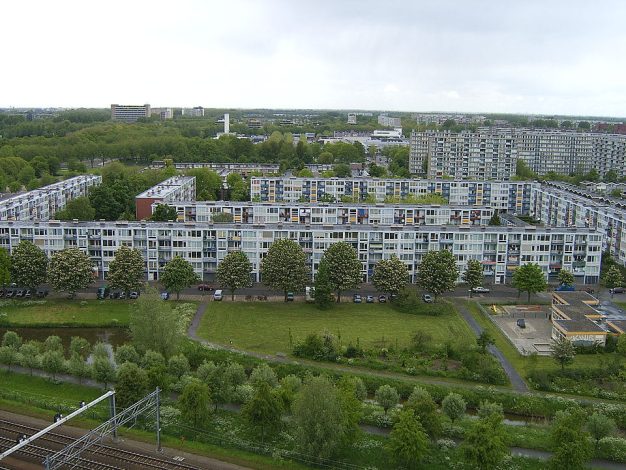
Child rights being denied during family evictions – Dutch Ombudsman
The Dutch government ‘does not aways comply with children’s rights obligations’ when evicting families, and must make improvements to the system, says a new report.
Parents, children and professionals regularly make complaints to the National Ombudsman and Ombudsman for Children about the methods employed by Dutch municipalities when evicting families, prompting this new joint report.
In 2022 they began investigating ‘bottlenecks’ experienced by families within the eviction system, and what in these instances were the obligations faced by the government.
Highlighting first and foremost how the right to housing is a ‘fundamental human right’, this report does make clear that families can face eviction in certain circumstances, such as when the rent is not paid, or they are causing a nuisance, or drugs are involved. But even then, ‘human and child rights obligations must be met’, it says.
‘Their life becomes survival’
Crucially, adds the report, it is ‘prohibited for families to become homeless due to eviction’. The well-being and development of children must also be protected during the process and (the) government has a duty to ensure that these rights are met. The conclusion, however is that ‘this does not always happen’.
Reinier van Zutphen, National Ombudsman, said: “I see that people are at risk of becoming homeless after they have been evicted from their homes and are considered responsible for finding new housing. If help does come from municipalities, families often end up in all kinds of temporary housing solutions for a long time.
“Their life then becomes survival and they cannot work on their future. These people experience a lot of stress and are then actually homeless. The government is insufficiently aware of this and is therefore not fulfilling its duty of care.”
The ombudsman effectively goes on to say that red tape is a real issue, with the government’s obligations often ‘insufficiently anchored in regulations’. There is still too much dependence on local knowledge, choices in policy and the efforts of individual municipal officials and social workers. The ombudsmen call this ‘undesirable’ and point out that this lack of commitment can lead to arbitrariness, inequality and exclusion.
‘Children are never talked to’
Children, in particular, are often ‘invisible’ when it comes to evictions, according to the Margrite Kalverboer, the Children’s Ombudsman. She said: “Children are never talked to, they receive no support and they are not prepared for what the future will bring.
“The impact of evictions is especially enormous for children. We know how important it is for children to live in a stable and safe environment. environment, so they should be extra well protected.
Both ombudsmen, however, acknowledge the positive steps taken, including being able to identify rent arrears as early as possible, and therefore helping prevent evictions taking place at all. There was a total ban on evictions during the pandemic.
“Early detection helps, but is only part of the puzzle,” added van Zutphen. “The Ombudsman for Children and I therefore call on Minister De Jonge for Housing and Spatial Planning to take extra steps.
Based on a human and children’s rights test, new policy and legislation will focus on the impact on fundamental social rights. This should lead, among other things, to the obligation of municipalities to provide decent alternative housing and to policy for municipalities and housing corporations that prescribes how parents and children should be properly involved and informed about and during an eviction.
“Evictions will always be a bad experience, but the government plays a crucial role in securing the future of these families.”
Click here for the full report (in Dutch).




